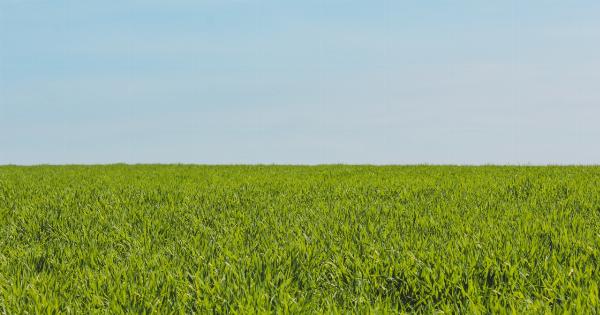Pregnancy is one of the most exciting and transformative times in a woman’s life. During pregnancy, your body goes through huge changes to support the growth and development of your baby.
To ensure a healthy pregnancy and a healthy baby, it’s important to pay close attention to your nutrition. Eating for two doesn’t mean doubling your portions, but it does mean making sure you’re getting the right balance of nutrients to support your growing baby.
Getting the Right Nutrients
There are a few key nutrients that are particularly important during pregnancy:.
1. Folate
Folate, or folic acid, is essential for the development of your baby’s brain and spinal cord. It’s important to get plenty of folate before you get pregnant, but it’s also important to continue getting enough during pregnancy.
Good sources of folate include leafy green vegetables, citrus fruits, and fortified cereals.
2. Iron
Iron is essential for the production of hemoglobin, the protein in red blood cells that carries oxygen throughout your body. During pregnancy, your body needs more iron to support the growing baby and placenta.
Good sources of iron include lean red meat, poultry, fish, beans, and fortified cereals.
3. Calcium
Calcium is necessary for the development of strong bones and teeth. During pregnancy, your body needs more calcium to support the growing baby’s bones and teeth.
Good sources of calcium include dairy products, leafy green vegetables, and fortified cereals.
4. Protein
Protein is essential for the growth and development of tissues in your body and your baby’s. During pregnancy, you need more protein than usual to support the growing baby. Good sources of protein include lean meat, poultry, fish, beans, and nuts.
5. Omega-3 Fatty Acids
Omega-3 fatty acids are essential for the development of your baby’s brain and eyes. Good sources of omega-3 fatty acids include fatty fish like salmon, trout, and sardines, as well as walnuts, and flaxseeds.
Eating a Balanced Diet
During pregnancy, it’s important to eat a balanced diet that includes a variety of nutrient-rich foods. Here are some tips to ensure you’re getting the right balance of nutrients:.
1. Eat plenty of fruits and vegetables
Fruits and vegetables are packed with vitamins, minerals, and fiber. Aim for at least five servings per day, and choose a variety of colors to ensure you’re getting a range of nutrients.
2. Choose whole grains
Whole grains are a good source of complex carbohydrates, which provide energy and fiber. Choose whole grain bread, pasta, and brown rice over refined versions.
3. Include lean protein sources
Lean protein sources like chicken, fish, beans, and nuts are important for muscle and tissue growth. Aim for two to three servings per day.
4. Don’t forget about dairy
Dairy products like milk, cheese, and yogurt are good sources of calcium, which is important for developing your baby’s bones and teeth. Aim for three servings per day.
5. Choose healthy fats
Healthy fats like those found in avocados, nuts, and olive oil are important for brain development and providing energy. Avoid saturated and trans fats found in processed foods and fatty meats.
Avoiding Certain Foods
There are some foods to avoid during pregnancy to reduce the risk of foodborne illness:.
1. Raw or undercooked meat, poultry, and fish
These foods can be contaminated with bacteria like salmonella and E. coli, which can cause serious illness.
2. Unpasteurized dairy products
These products can be contaminated with listeria, which can cause miscarriage or stillbirth.
3. Raw or undercooked eggs
Eggs can be contaminated with salmonella, so it’s important to cook them thoroughly.
4. Processed meats
Processed meats like hot dogs and deli meat can contain listeria, so it’s important to heat them thoroughly before eating.
Conclusion
Eating a healthy, balanced diet is essential for a healthy pregnancy and a healthy baby. By paying attention to your nutrition and getting the right balance of nutrients, you can help ensure the best possible outcome for both you and your baby.






























